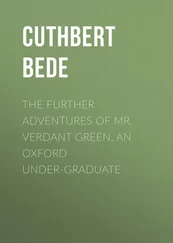Some months went by like this, but in time these set hours began to irk me like a shirt collar that's too tight. I'd had about enough of this job and I asked the chief of the geologists to take me with him when he went out on a prospecting expedition into the most interesting regions, even if they were dangerous.
The point of these expeditions was to make a geological survey of the Sierra de Perijá, the mountain chain to the west of Lake Maracaibo that divides Venezuela from Colombia. It is the country of a very fierce, warlike tribe of Indians, the Motilón: so much so that the Sierra de Perijá is often called the Sierra de los Motilónes. Even now nobody knows just where this tribe came from; their language and their customs are quite unlike those of the neighboring tribes, and they are so dangerous that "civilization" is barely beginning to make its way among them. They live in communal huts that house from fifty to a hundred people, men, women and children all mixed up together. Their only domestic animal is the dog. They are so wild that you hear of many cases where Motilón Indians captured by "civilized" people absolutely refuse to eat or drink; and although they may be well treated, they end up by killing themselves, biting the veins in their wrists with their front teeth, which are specially filed for tearing meat. Since the days I am talking about, the Franciscans have bravely settled on the banks of the Rio Santa Rosa, only a few miles from the nearest communal house. The Father Superior uses the most modern methods, dropping food, clothing, blankets and photographs of Franciscans over the huts from a plane. Even better, he parachutes straw figures dressed in Franciscan robes, the pockets filled with different kinds of food and even cans of milk. No fool, the good father: the day he turns up on foot, they'll believe he's dropped from heaven.
But when I asked to take part in these expeditions it was back in 1948, a long time before those attempts at "civilized" penetration.
As far as I was concerned, these expeditions had three positive advantages. In the first place, they meant a completely different life from the one I was leading in the kitchen of the Richmond Company's camp; and I had seen just about all I ever wanted to see of that. It would be an adventure again, but honest-to-god adventure this time. There was real danger, of course, as there is in any adventure-quite often an expedition would come back short one or two members, because the Motilón Indians were highly skilled at archery. (Where a Motilón sets his eye, there he sets his arrow, as they say in those parts.) But if you were killed, at least you were not eaten, because they were not cannibals. There was always that to be thankful for.
Second advantage: these three-week tours in the deep, unexplored, dangerous bush were very well paid. I'd make more than twice what I earned at my kitchen stove.
Third: I liked being with the geologists. They knew a great deal. Although I was well aware it was too late for me to learn enough to make me a different man, I had the feeling that I would not be wasting my time, going about with these scientists.
So, as a member of their expedition, I set off full of confidence and enthusiasm. No need for any cookbooks; I just had to know how to open cans and make bread and pancakes.
My new friend, the geologist in charge of the expedition, was named Crichet. He had been lent to the Richmond by the California Exploration Company. He knew absolutely everything about the oil side of geology, but he wasn't quite sure whether Alexander the Great came before Napoleon or after. In any case, he didn't give a damn one way or the other; he didn't need to know history to be very fit, to have a splendid wife, to give her babies, and to provide his company with the geological information they needed. Still, I dare say he did know more than he let on-in time I learned to watch out for his sort of half-English humor, quite unlike what we were used to in my native Ardèche. We got along very well.
An expedition of this kind lasted between twenty and twentyfive days, with a week's leave when you got back. It was made up of a geologist in charge, two other geologists, and from twelve to eighteen porters and helpers-strength and discipline were all that was asked of them. They had their own tents and their own cook. I only looked after the three geologists. The men were not fools in any way, and among them there was a militant member of the left-wing Acción Democrática who saw the union laws were obeyed. His name was Carlos. There was a good overall understanding, and I was the one who kept count of the overtime, which they always put down with absolute precision.
This first expedition fascinated me. Getting hold of geological intelligence about oil fields is a very interesting business. The idea is to follow the rivers up into the mountains as far as possible, keeping to the passage they have cut through the rock. You go as far as you can in trucks, and then take to jeeps; when there is no path anymore, you paddle up the river in canoes; and when the river is too shallow you get out and shove, still going up as far as you can toward the source. The equipment is carried by the porters, about a hundred pounds a man, but the three geologists and the cooks don't carry anything.
Why go so far into the mountains? Because you see all the successive geological formations, just like in a school book, along the course the river has dug out. You cut samples from the walls, sort them, label them and pack them away in little bags. The geologists note the direction of the different layers sloping toward the plain. And so, with these hundreds of geological samples taken from different places, they draw up a map of the strata that should be found in the plain at a depth of, say, between three thousand and six thousand feet. And by working it out very carefully from all this information, one day they hit oil perhaps fifty miles away, in some place where nobody has ever been, because they know in advance that the oil will be there at a given depth. Talk about the wonders of science-I was filled with admiration.
All this would have been fine if it hadn't been for the Motilón Indians. Often members of the expeditions were killed or wounded by their arrows. This hazard did not make recruiting any easier, and it cost the companies a great deal of money.
I went on several expeditions, and I had some marvelous experiences. One of the geologists was a Dutchman named Lapp. One day he was gathering alligator's eggs-they are very good, once they are dried in the sun. You can easily find them by following the track the alligator leaves as it crawls on its belly from the river to the dry place where it lays its eggs: it sits on them for hours and hours. Taking advantage of the alligator's absence, Lapp dug up the eggs and calmly carried them back to the camp. He had scarcely reached our clearing before the alligator appeared, tearing along like a racing car and coming straight for him. It had followed the robber's trail and was going to punish him. About ten feet long, it gasped hoarsely as it came, as if it had laryngitis. Lapp started to run, darting around and around a big tree; and I howled with laughter at the sight of this big guy in shorts bounding about and bawling for help. Crichet and his men came running; two explosive bullets stopped the alligator dead. As for Lapp, he fell on his ass, as pale as death. Everybody was shocked by my behavior. I told them there was nothing I could have done in any case, because I never carried a rifle-it got in the way.
That evening, while we ate my canned dinner in the tent, Crichet said to me, in his sort of French, "You not so young; at least thirty-four, eh?"
"Rather more. Why?"
"You living, you behaving like man of twenty."
"Well, you know, I'm not much more. I'm twenty-seven."
Читать дальше
Конец ознакомительного отрывка
Купить книгу











